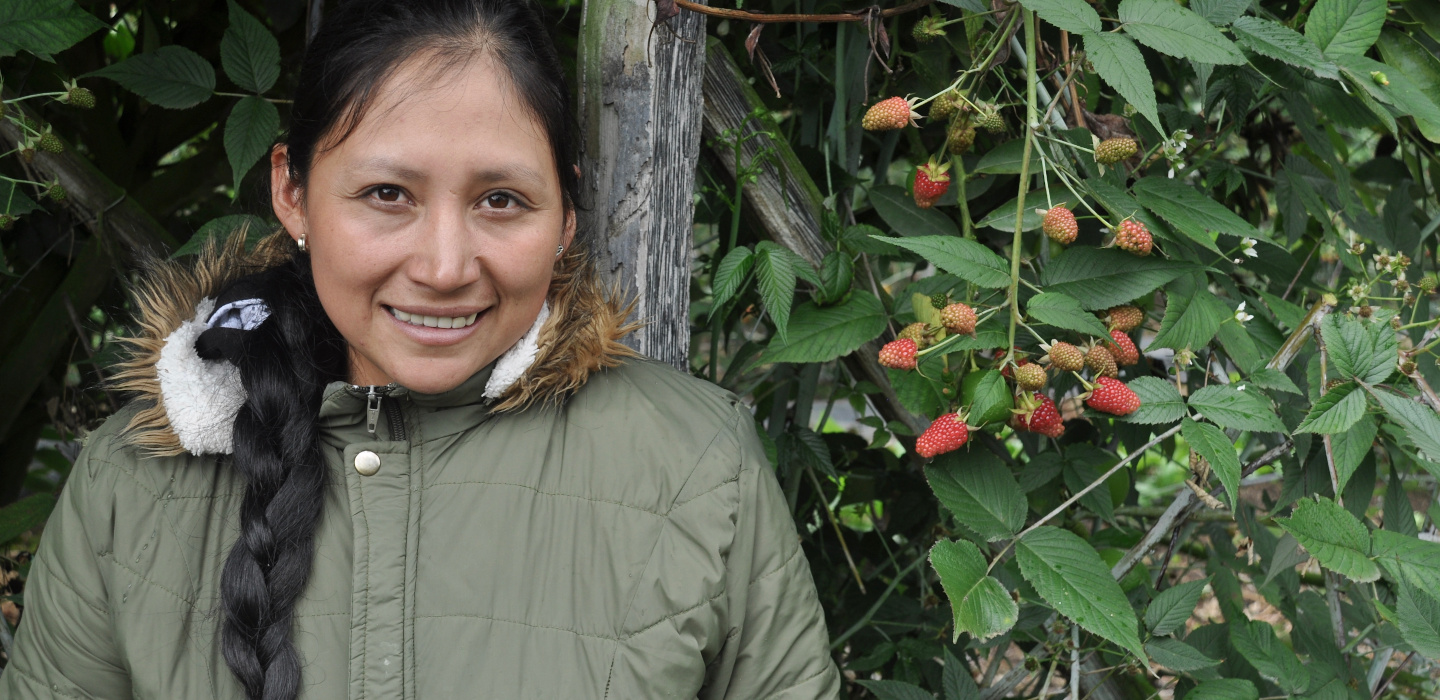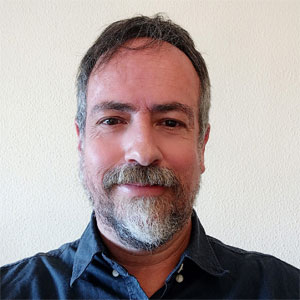The difference four years makes: A small Ecuadorean town goes from subsistence to prosperity with IFAD’s support
IFAD Asset Request Portlet
Asset Publisher
The difference four years makes: A small Ecuadorean town goes from subsistence to prosperity with IFAD’s support
Estimated reading time: 4 minutes
Four years ago, the residents of Chiquicha, a remote town in Ecuador’s Tungurahua province, were just gathering the first fruits of an irrigation project launched by the Buen Vivir programme. Now, they see a prosperity they hardly could have imagined before.
I know because I first visited the community on mission four years ago, and returned some months ago, this time accompanying Rossana Polastri, IFAD’s Director for Latin America and the Caribbean. Pride and joy were all around.
Between September 2013 and April 2015, Buen Vivir, a joint effort by IFAD and Ecuador’s Ministry of Agriculture, invested US$173,000 in Chiquicha to build water reservoirs and set up drip irrigation systems for 90 families. With contributions from beneficiaries and the municipality, the total investment amounted to almost US$300,000 – quite an effort for the people of this small town at the foot of the majestic Tungurahua volcano.
“Chiquicha’s people really committed to the project,” said Leonardo Gallegos, Buen Vivir’s local director. “It was not easy at first: they had doubts, they feared being deceived. But when the project took off, many beneficiaries kept on investing. The result is amazing.”
Family farmers in Chiquicha speak with Rossana Polastri about the project’s successes.
The irrigation system has revolutionized the way producers in Chiquicha work. “Water is essential for agriculture, but it doesn't rain here between May and November,” explained Trajano Pasmiño, a prominent figure of the Local Action Group, the local mechanism set up for coordinating the different groups that benefited from the project. “Now we can water during those months, because the reservoirs store water for up to six months.”
María Rosa Changopalín, president of the La Pampa Producers’ Association, added, “Now we can plant whenever we want, while before we had to wait for the rainy season.” She proudly showed us her thriving farm, which runs downhill on extremely steep terrain. Then, she pointed out a steep, rocky embankment on the other side of the valley. “Before, this land was like that hillside. There was nothing,” she explained.
Franklin takes us on a tour of his strawberry field.
“We have stable production now, because now we can harvest several times a year,” said Franklin Morales, secretary of the La Pampa Association. “In addition, we diversified. Before, we only planted tree tomatoes. Now we have blackberries, grapes, raspberries, strawberries, tobacco, corn, vegetables...”
He showed us his strawberry field, a perfectly organized 400 m2 plot, and posed for a photo wearing an extraordinary smile. It was certainly no surprise why: his family’s income has gone from US$390 to US$700 from this field alone. The additional funds have allowed him to buy more land, and his family is now making $1,400 a month in total.
Overall, the beneficiary families’ monthly income has gone from an average of US$529 before the investment to US$979 just after the completion of the project – an increase of 85 per cent. That figure is even higher now.
The success of the project has sparked a kind of “positive jealousy” throughout the region. Rocío Morales’ family, for example, didn’t take part in Buen Vivir, but they decided to invest their savings in a similar drip irrigation system. The investment turned out so well that they bought more land. Today, their profit is around US$1,000 a month – and that’s after the US$1,200 a month that goes toward repaying their loan. In total, they’ve gone from earning about US$500 to US$2,200 a month.
Rocío pauses for a photo next to some of her crops fed by the drip irrigation system.
Many other families have stories similar to Rocío's. The original project saw the installation of drip irrigation systems on 9 ha of land. Now, almost 100 ha are irrigated. And the good news has travelled through the region. The neighboring municipality of Rosario plans to replicate the project, thanks to an additional US$10 million in funding received by Buen Vivir. Mayor Byron Cundalato is enthusiastic about the opportunity for 150 of his municipality’s families to achieve the prosperity he sees in Chiquicha.
And they’re eager to go further in Chiquicha, too. Víctor Morales explained that he is planning on improving the drip irrigation system with a humidity-sensing system for an even better use of water. “IFAD's help was the first step. But we want to go beyond,” he said.
Apart from these individual initiatives, Buen Vivir staff is currently designing a second phase of the project that will complete the transition to organic farming by transforming crop residues, which are currently just being burned, into biomass. It will benefit around 1,000 families, who will have the opportunity to cut down their CO2 emissions and gain access to high-quality organic fertilizers. This in turn will qualify them to obtain an organic production certificate, which will allow them to enter more select markets and obtain a better price for their products.
When Rossana and I left Chiquicha, we felt proud. We’d seen proof that investing in small farmers makes sense, and IFAD’s work was paying off.
We thought back to Sergio Arcos, the Local Action Group’s current president, who had quoted Cicero to us: “Agriculture is the most dignified occupation for a free man.” We were inclined to agree.
Learn more about IFAD’s work in Ecuador.
Publication date: 16 June 2020